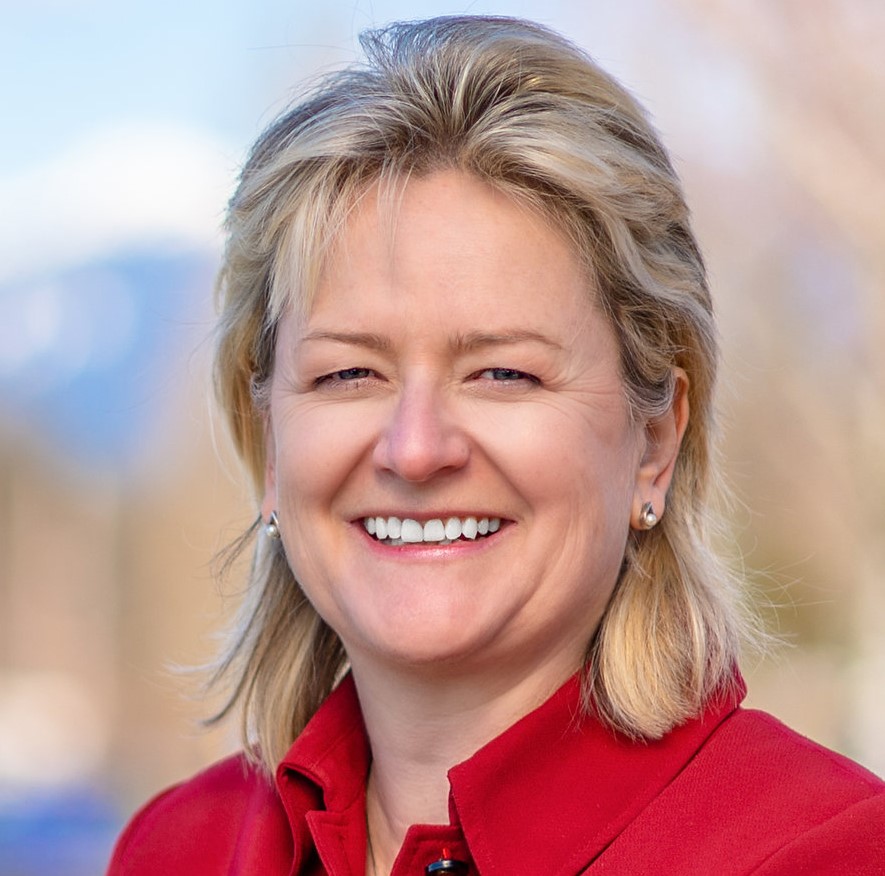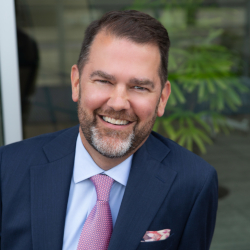ARTICLES BY CATEGORY: Preparing for retirement
-


Case Study – When to Start Receiving OAS Benefits
By Bryn Hamilton on 11 Jul 2024
Government benefits are often an area that gets confusing for Canadians as they plan for retirement.
-


Discovering What’s Next: Navigating the Transition through Retirement
By Susan Phelan on 11 Jul 2024
Retirement isn’t a one-size-fits-all experience. In today’s dynamic world, it’s more of a gradual transition than a sudden event.
-


The Importance of Retirement Income Projection
By Chris Eynon on 11 Jul 2024
As retirement approaches, ensuring financial stability becomes a priority. One crucial aspect of this preparation is creating a retirement income projection.
-


Longevity and Life Annuities
By Clay Gillespie on 28 Jul 2022
A couple of questions we commonly get asked are “What is a life annuity?” and “Should I consider a life annuity in my situation?”
-


Case Study: Solving the Retirement Income Puzzle
By Anne Hammond on 07 Jan 2022
“Retirement” – the word represents many things these days. It could be a lifestyle full of travel and adventures, or perhaps a transition to volunteer work...
-


Pension Considerations – One of the Biggest Decisions of Your Life
By Teresa Black Hughes on 07 Jan 2022
Called the Great Resignation, since the pandemic, employees are leaving the workplace/workforce or switching jobs in droves.
-


Today’s Executor is a Digital Executor
By Sharon Hartung on 23 Jul 2021
On May 13, 2021, I was delighted to join RGF advisors and clients for their second virtual event where I discussed the ideas covered in my first book, Your Digital Undertaker– Exploring Death in the Digital Age in Canada.
-


Planning for Retirement... Mentally
By Debbie Saleem on 29 Apr 2021
You’ve met with your advisor and are delighted to find out that you’re financially on track to retire within the new few years.
-
.jpg?sfvrsn=c3ba1ca4_0)

When Should You Start Receiving Your CPP Retirement Pension?
By Doug Runchey on 07 Jan 2021
Since 1987, when the Canada Pension Plan (CPP) first introduced flexible retirement pension start dates, this has been one of the most common questions that I get asked...
-


Retirement on Your Horizon? Considerations of the Pandemic ’s Ripple Effects
By Isabelle St-Jean on 21 Oct 2020
While leading retirement seminars for pre-retiring professionals over the past 10 years, I have observed diverse levels of readiness, attitude, and concern toward this major work/life transition.
-


What is a Financial Plan?
By Anne Hammond on 20 Jan 2020
What does it mean to create a financial plan? And why is it important to do so?
-


Do You Have a Will?
By John Hale on 21 Oct 2018
Is that will of yours looking a little worn and tattered or perhaps you don’t have a will at all?If the answer is yes, you are not alone.
-


What does Life Expectancy Actually Mean?
By Clay Gillespie on 27 Apr 2018
Life expectancy is one of the most misunderstood aspects of retirement income planning - yet, it is one of the most important factors.
-


Maintaining your Retirement Capital
By Daniel Sitar on 02 Oct 2017
Everyone has different goals and expectations for their retirement. Likewise, everyone has a different level of financial resources they can use to achieve these goals.
-

Q and A: What is an annuity and how does it work?
Posted on 03 Jul 2017
A life annuity is a financial vehicle that allows you to exchange a lump sum of capital for a guaranteed income for as long as you live (or you and your spouse or partner lives).
-


The Importance of Budgeting
By Nick Hearne on 03 Jul 2017
A strong awareness and understanding of your personal finances is an integral part of the financial planning process. This holds true regardless of your phase in the financial life cycle.
-


Pools and Streams – Retirement Income
By Alain Quennec on 03 Jul 2017
Louise is retiring soon, and it just dawned on her that she isn’t clear what’s going to happen to her cash flow after the regular paycheques stop coming in. I find this a great source of concern among the nearly-retired...
-


Keeping More of what you Earn
By Christian White on 03 Apr 2017
You’ve saved long and hard for many years. You’ve made sacrifices and put your long-term needs ahead of your current desires for that vacation, the newer car or upgrading the kitchen.
-


Beneficiary Designations – benefits and considerations
By Nick Hearne on 09 Sep 2016
Individuals have the option to designate beneficiaries directly on assets such as registered plans, insurance policies and annuities.
-

Q and A: How do I take advantage of the Government of Canada online tools and resources?
Posted on 01 Jul 2016
A good place to start would be to register to access your information with the Canada Revenue Agency (CRA) online.
-


2016 Horizons Report
By Clay Gillespie on 01 Jul 2016
We are pleased to present the results of the 2016 Horizons Retirement Report. This report summarizes the dreams, fears, hopes and challenges of Canadians planning to retire within the next 3 to 7 years.
-


Building your Financial Future
By Bryson Milley on 01 Apr 2016
One of the most regular questions I’m asked by retiring clients is, “How do we manage our investments once we’re retired?”
-

Human Capital and the Financial Life Cycle
Posted on 01 Jan 2016
Take a moment to think back to the day you got your first job. At that time, you likely had minimal financial assets and no real estate...
-


2015 Horizons Retirement Report
By Clay Gillespie on 18 Jul 2015
Many of our clients are concerned about what life will look like during their retirement years. For this reason, we started our retirement survey five years ago to explore what Canadians are thinking as they approach retirement.
-


Case Study: The Costs of Health
By Shaun Sun on 03 Jan 2015
Don and Jane Smith are the proud and loving parents of 2 children age 15 and 16. At a meeting with their accountant, one of the topics of concern for the family is the large health costs...
-

Retirement Income Planning
Posted on 01 Jul 2014
During your working life, you may have had one or two sources of income with limited ability to manage the timing of cash flows.
-


Horizons Retirement Report 2014
By Clay Gillespie on 01 Jul 2014
Every year, we commission a survey (conducted by Concerto Research) to explore what Canadians are thinking and feeling as they approach retirement.
-


Beyond the RRSP
By Mark Neufeld on 01 Apr 2014
When you require income from your RRSP, a Registered Retirement Income Fund (RRIF) may be appropriate for you.
-


Aligning your Goals
By Cecilia Tsang on 01 Apr 2014
Is your portfolio the result of your goals (or lack thereof)?
-


Tax Savings and RRSPs
By John Hale on 01 Jan 2014
Many of our clients use Registered Retirement Savings Plans (RRSPs) as one of the pillars of their wealth building strategy. An RRSP is a type of retirement savings plan that is registered with the Canada Revenue Agency.
-


Horizons Retirement Report 2013
By Clay Gillespie on 01 Jul 2013
We’ve just completed the 2013 edition of the Horizons Retirement Report. This survey is done with Canadians who are approaching retirement.
-

Personal Corporations and Retirement Income Planning
Posted on 01 Apr 2013
Many of our clients who operate a small business or professional practice in law, medicine, real estate, or accounting will be incorporated.
-


Saving for Retirement
By Vera Vlaovich on 01 Jan 2013
RRSPs were introduced in 1957 by the federal government to encourage Canadians to save for retirement.
-


Defined Benefit Pension Plans
By Bryn Hamilton on 14 Apr 2023
Do you contribute to a defined benefit pension plan?
-


Government Benefits
By Clay Gillespie on 16 Dec 2021
There are two main types of government pensions that most Canadians can expect to receive during their retirement years: Old Age Security (OAS) and the Canada Pension Plan (CPP).
-


What are the major risks when planning your retirement?
By Clay Gillespie on 14 Aug 2019
-


Sequence of Returns Risk
By Nick Hearne on 17 Sep 2018
Most investors understand that to achieve their long-term target rate of return, they will need to accept some volatility in the short and medium term.
-


Holiday conversations…
By Mark Neufeld on 19 Dec 2017
As we approach the holiday season, you’ll hopefully find some time to spend with family and/or friends. Many conversations will be had and some may be about that overdone turkey and some may even be about the investment markets.
-


What is responsible investing
By Linson Chen on 03 Dec 2017
Responsible investing (also known as ethical investing and socially responsible investing) is growing in popularity as more investors are seeking to align their portfolios with their values.
-

How to Succeed at Retirement
Posted on 17 Nov 2017
Don't simply retire from something; have something to retire to. ~Harry Emerson Fosdick
-


What are OAS and CPP worth?
By Clay Gillespie on 19 Jun 2017
Both OAS (Old Age Security) and CPP (Canadian Pension Plan) are government income entitlements that are meant to provide Canadians a guaranteed inflation-indexed pension for as long as they live. But what are they worth to you today?
-

The Ultimate Currency
Posted on 20 Apr 2017
What is the ultimate currency? Is it money? Canadian dollars or U.S. dollars? Is it gold or real estate? No, the ultimate currency is not a tangible asset at all. You can’t save time. You can only spend it… Benjamin Hoff, The Tao
-


Income Splitting 101
By Bryn Hamilton on 17 Feb 2017
If you or your partner receive qualified pension income, the federal government’s pension income-splitting provisions could mean extra money in your pocket when you file your income tax returns.
-


RRIF withdrawal rates
By Chris Eynon on 15 Jun 2015
-

Changes to the RRIF Minimum
Posted on 17 Dec 2014
In the year you turn age 71, you must convert your RRSP funds to a RRIF, annuity, or cash out. Converted to a RRIF, the plan must pay out a minimum of 7.38% of the value on January 1st.

